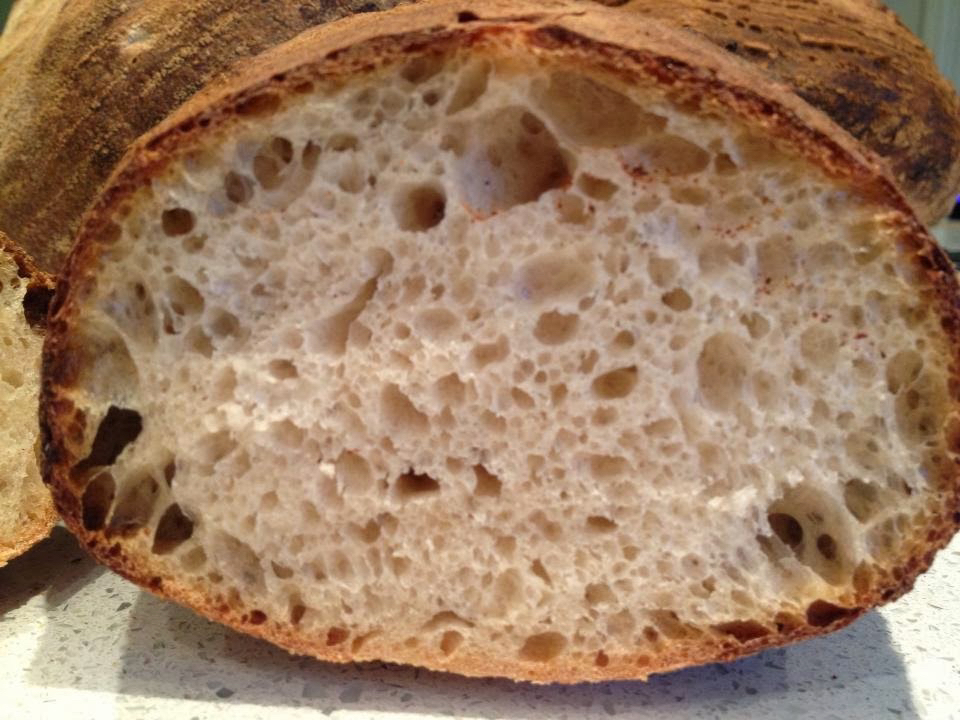An apology to everyone for my lack of blogging and baking since Christmas Eve. I thought I’d give myself a little break from the mixing and the kneading and the tinning up and spend a little more time with my family over Christmas and New Year (that is allowed, right??). I have also used the time to question just why I put myself through the stress and sometimes physical pain of single-handedly producing around 36 loaves a week on Tuesdays, Thursdays and Saturdays. Not to say that I reached a crossroads, but I am reaching a point where I am starting to wonder if all this hard work is worthwhile; I certainly make no money from this venture and there seems to be so few people out there who care about what they put into their bodies that I might aswell have decided to sell drugs instead.
I am currently reading ‘Bread Matters- Why and How to Make Your Own Bread.’ by Andrew Whitely. It has injected a new determination in me to continue my quest to put Real Bread on the map in Luton. Whether I do this single-handedly, or launch something a bit bigger in the community I know I want to continue making Real Bread. So I have been experimenting with rye and spelt sourdough starters and learning a great deal more about the bread we eat. There are some shocking facts and these are my favourites below, however if you want to know more, ask me and I’ll bore the pants of you, or read the book:
FACT: Roller-milling to produce white flour for 80% of breads sold in this country removes a massive proportion of vitamins and nutrients that are naturally occurring in the grain. The flour I use is all organic and stone-milled, which means it retains the maximum amount of nutrients.
FACT: Industrial loaves have very little proving time and therefore, artificial flavourings are added to cover up the taste of the chemical cocktail that is added to assist with the rise and loaf structure! None of this is needed in my bread, as the slow development gives a far superior flavour.
FACT: Celiac disease and intolerance to wheat has increased since industrial bread processes introduced in 1961 and Ireland have a high incidence of Celiac -(coincidence that they eat a lot of soda-bread which is chemically risen with Bicarb of Soda??).
FACT: Lactic acids that are allowed to develop in slow fermented dough help to neutralise the harmful gliadins in the gluten that are harmful to celiacs.
FACT: You’ll pay around £1 something for a white Bloomer baked at Asda (although the dough might have been brought in frozen) which has very little nutritious value and a cocktail of chemicals. My loaves will cost nearly double but will have three times the nutritional value. Therefore, to get the same amount of sustenance from industrial bread as my bread, you’d have to eat three times as much. (Is this why I have lost weight in the last 6 months???)
3 slices of industrial bread, v 1 slice of a Jo’s Loaf.
Now whose bread is better value……
NEXT BAKE DAYS:
Thursday, 12th January, Hullaballo, 10am. orders by midnight on Monday,
Saturday, 14th January, Collection from Tameton Close between 9.45 and 10.30am, orders by midnight on Wednesday,
Tuesday, 17th January, Collection from Tameton Close between 10 and 12pm, orders by midnight on Saturday.
